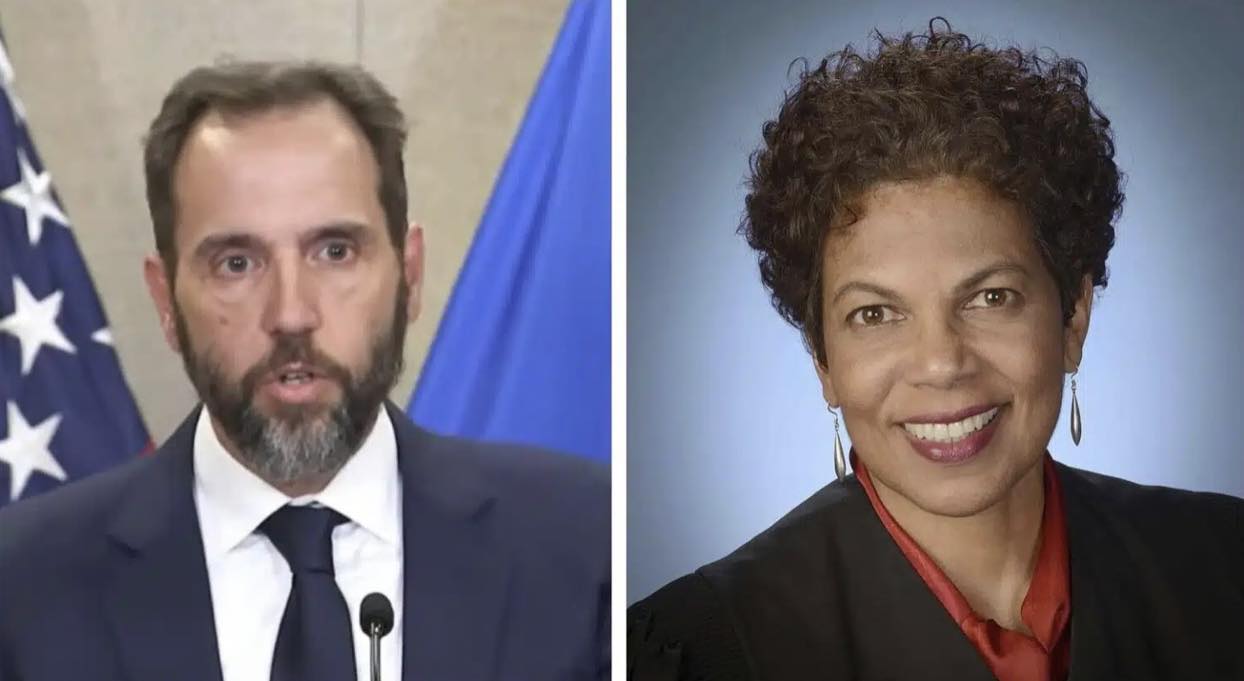The federal judge overseeing former President Donald Trump’s 2020 elections case has given him a major victory.
U.S. District Judge Tanya Chutkan ruled that while it was close, the government did not convince her that all information regarding the case should be restricted, Fox News reported.
“Chutkan heard arguments about the restrictions on evidence in the case. In court filings, prosecutors had argued for broad rules baring Trump’s lawyers from sharing ‘sensitive’ materials with the former president, including witness testimony to the grand jury and recordings and transcripts of Trump associates who spoke to prosecutors,” the outlet reported.
“Trump’s attorneys countered that the government’s request was too broad and infringed on Trump’s First Amendment rights,” the network continued, adding:
In a “close” decision, Chutkan said she was not persuaded that the government has shown all information gathered in the case would fall under the protective order. She ruled that only information designated as “sensitive” should be protected.
“The defendant has the right to free speech, but that right is not absolute,” Chutkan said as the hearing began. “Without a protective order, a party could release that info to the jury pool.”
Thomas Windom, a prosecutor on Smith’s team, argued before Chutkan on Friday that the restrictions were vital to prevent the “improper dissemination of materials … including to the public.”
“The defendant has set forth an intention to set forth any information that they deem informative,” Windom told the judge.
“Defense has broadcast their strategy, and that is not to try this case in this courtroom, and your honor should address that,” he added.
The judge agreed, but she was nevertheless hesitant to issue a blanket order.
Trump’s attorney, John Lauro, went on to argue that the government’s request was “extraordinary.”
“We are in uncharted waters, we have a defendant running for president, and his opponent has the DOJ bringing charges against him,” Lauro said.
“The fact that he’s running a political campaign has to yield to the orderly administration of justice,” Chutkan replied.
“The defendant’s desire to respond to political opponents has to yield,” Chutkan said. “There are limits. This is a criminal case. The need for this case to proceed in a normal order means there are going to be limits on the defendant’s speech.”
She then told Trump’s lawyer that how a protective order could eventually affect the presidential campaign was not her concern.
“I cannot and will not factor into my decisions the effect it will have on a campaign for either side,” she said.
Trump’s attorneys attempted to convince the judge that the government’s expansive request could hinder their client’s ability to address political criticisms during his campaign activities, potentially leading to inadvertent violations of the protection order.
“Everything that we do here now is under a political microscope, unfortunately, because of what the government has done,” he said. “There has to be fair play here. They haven’t even described the discovery. Is it one terabyte, is it 3 terabytes. You can’t ignore the fact that there’s a campaign.”
“He will get his rights,” Chutkan said. “The existence of a political campaign is not going to have any bearing on my decision. I intend to keep that out of my decision.”

